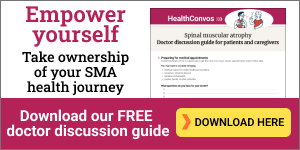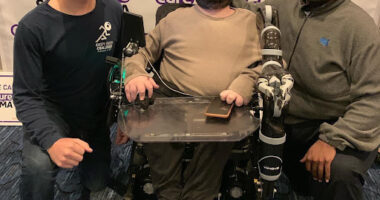
The patient-provider relationship: What’s most important?
Kevin Schaefer, who lives with SMA type 2, and neurologist Edward Smith, MD, discuss what they think is the most important aspect of the patient-provider relationship from their perspectives.
 Find a specialist near you
Find a specialist near you
Transcript
Kevin: So I’ll start with this one. For me, I think it’s mutual respect for one another because in order for the patient to feel safe, there has to be a level of respect there and understanding. And I’ve been in plenty of situations where a medical professional has addressed my parent or caregiver rather than me. And so the mark of a really good medical professional is one that treats me on their same level.
And Dr. Smith here, who was my neurologist for more than a decade, is definitely one of those people. And so we established that trust and respect very early on. So Dr. Smith, I don’t know if you have anything to add to that, but for me, that’s the No. 1 priority.
Dr. Smith: Yeah, I agree. And it depends on the age of the patient — is this a child and it’s the relationship with the parents on that level. But regardless, the trust, the respect, and that doesn’t happen the first visit either, right? So that’s what we’re talking about when we talk about a rapport. It takes time to develop.
I think also on the part of the physician, physicians could generally stand to be a little more humble in general and understand how much they can learn from their patients and families. And I know many physicians who are very good at that. And I always tried to learn. It’s not easy to teach me things sometimes, right, Kevin?
But I’ve always tried to learn from my patients, and I think that’s a key component as well, instead of viewing yourself as the teacher, or the fountain of all answers, because we don’t have a lot of answers. And I think being comfortable with saying, “I don’t know. What do you think?” is a good way to be in that relationship.
Recent Posts
- Scientists find molecule that may protect nerve cells in SMA
- Looking forward to the new year with more confidence than ever
- Motor unit changes track with SMA severity, new study shows
- SMA community honors legacy of disability rights activist Alice Wong
- Teamwork and faith helped my parents raise children with SMA










